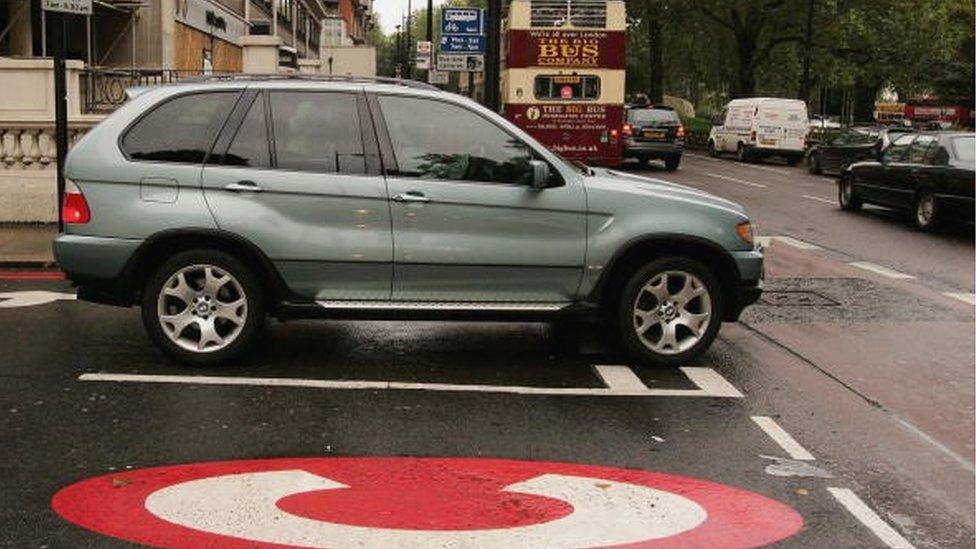Minicabs including Uber to pay London congestion charge
- Published
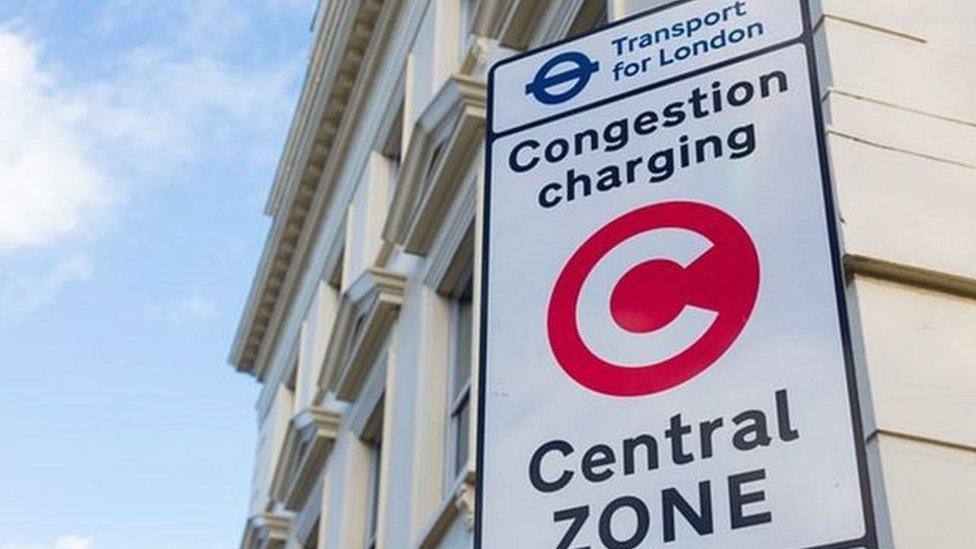
London Mayor Sadiq Khan said "toxic air pollution" in the capital was creating "a major public health crisis"
Private hire vehicles, including Uber and minicabs, will have to pay the Transport for London (TfL) congestion charge.
Under new plans that will come into force from 8 April, they will no longer be exempt from the daily £11.50 rate for driving in central London.
TfL said the proposals would help improve the capital's air quality.
The Independent Workers Union (IWGB) said the move would "hit workers on poverty wages".
In the first phase, only zero-emission vehicles will still be exempt from paying the congestion charge - which was introduced in 2003.
TfL said since the charge began 15 years ago, the number of vehicles entering central London each day has decreased by about 30%.
'Filthy air'
The announcement follows a consultation which TfL said received 10,000 responses.
Mayor of London Sadiq Khan said "toxic air pollution" in the capital was creating "a major public health crisis".
"We have to make tough decisions to protect the health and wellbeing of Londoners and tackle harmful emissions from the most polluting vehicles.
"Now we need private hire vehicles and taxis to play their part and help us clean up our filthy air responses."
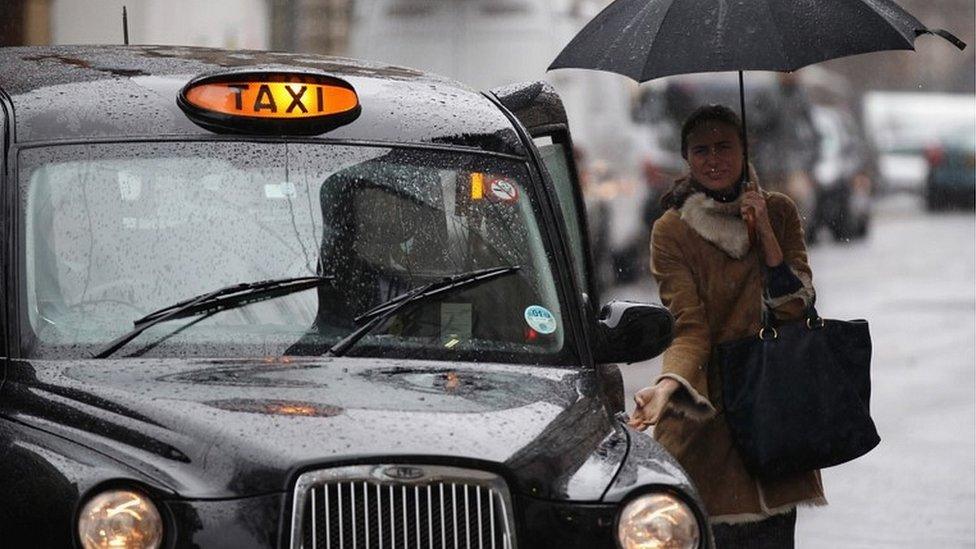
TfL will consult on proposals to reduce the taxi age limit for the dirtiest vehicles to 12 years by 2022
The IWGB said the plan would hit poorly paid workers while "doing little to address London's air pollution problem".
Abdura Razzak Hadi, chair of a branch of the IWGB's London committee, accused the mayor of "putting the vested interests of global mega-corporations and wealthy London consumers ahead of precarious workers suffering sweatshop conditions".
The Licensed Private Hire Car Association said it believed the move to be "discriminatory", adding it would "do everything we can to challenge this disappointing decision".
Steve McNamara, from the Licensed Taxi Drivers Association, described the change as "madness", saying it would cut the value of existing cabs.
The London Assembly has also called for the mayor to rethink his plans, calling it a "cynical move" to "raise some of the money he needs to rescue TfL from its dire financial straits".
"This policy would fail significantly to reduce congestion. The mayor's own figures show that the number of PHVs in the Congestion Charge Zone would fall by only 600 a day, or 1%," chairman Tony Arbour said.
TfL said it would also consult on proposals to reduce the taxi age limit for the dirtiest vehicles to 12 years by 2022.
The age limit for Euro 6, LPG and ZEC taxi vehicles is proposed to remain at 15 years.

Analysis
By Tom Edwards, BBC London transport correspondent
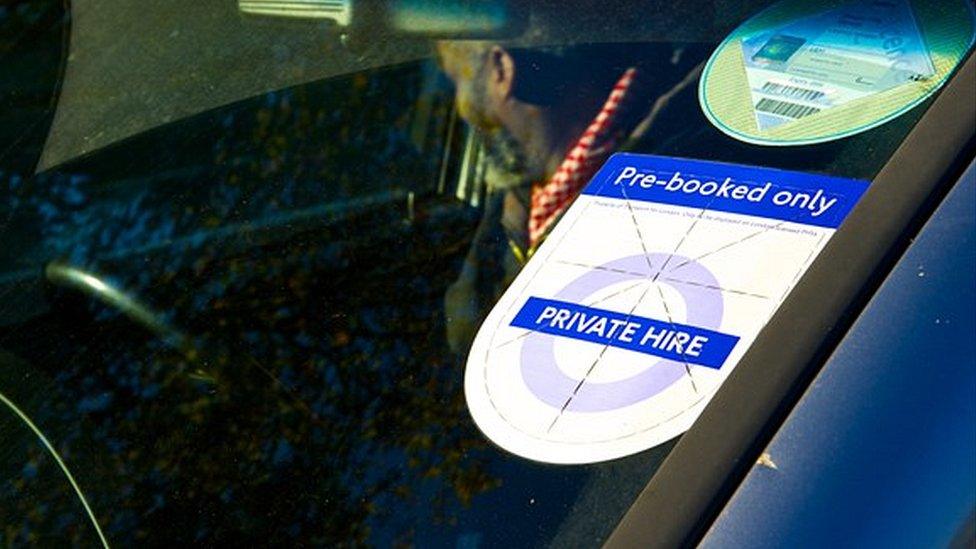
The congestion charge changes will come into force from 8 April
Broadly what we are seeing here is regulation catching up with the disrupters.
According to the mayor, the rise of hailing apps like Uber has led to a huge increase in private hire vehicles driving round waiting for work.
Now Sadiq Khan has taken action and will make them pay the congestion charge.
Concerns come from the GMB (union) that this will close minicab offices and cost jobs - the increase could also be passed on to customers.
The black cab trade will also not be happy that the age limit is being reduced. They will fear a huge amount of equity is going to be wiped off the value of their cabs.
But the message from City Hall is clear - first and foremost Londoners want cleaner air and do not want polluting vehicles in their city.
- Published13 December 2018
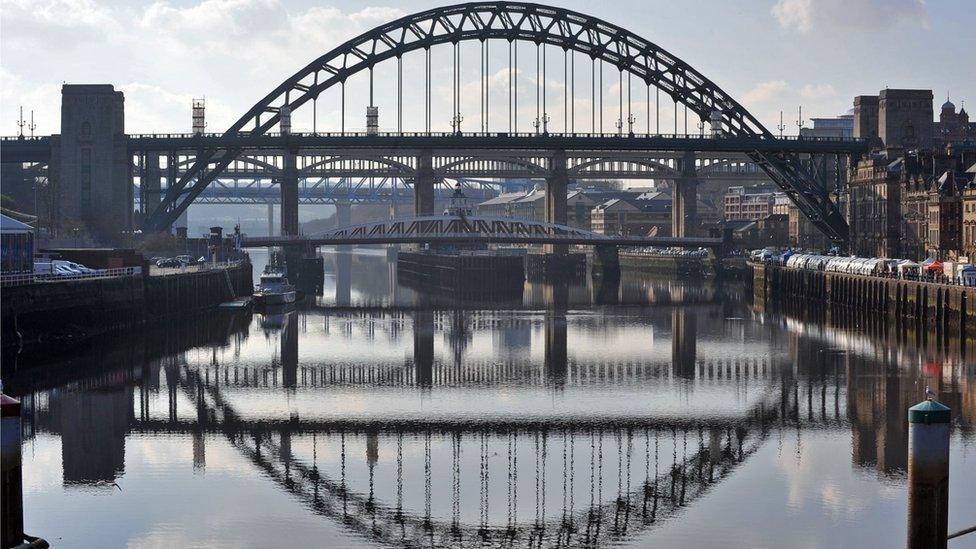
- Published6 July 2018
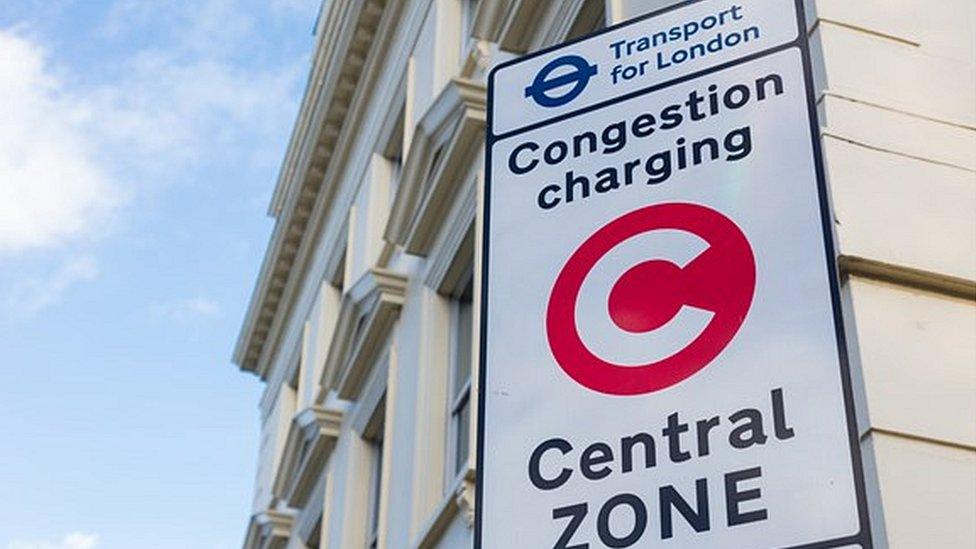
- Published19 January 2017
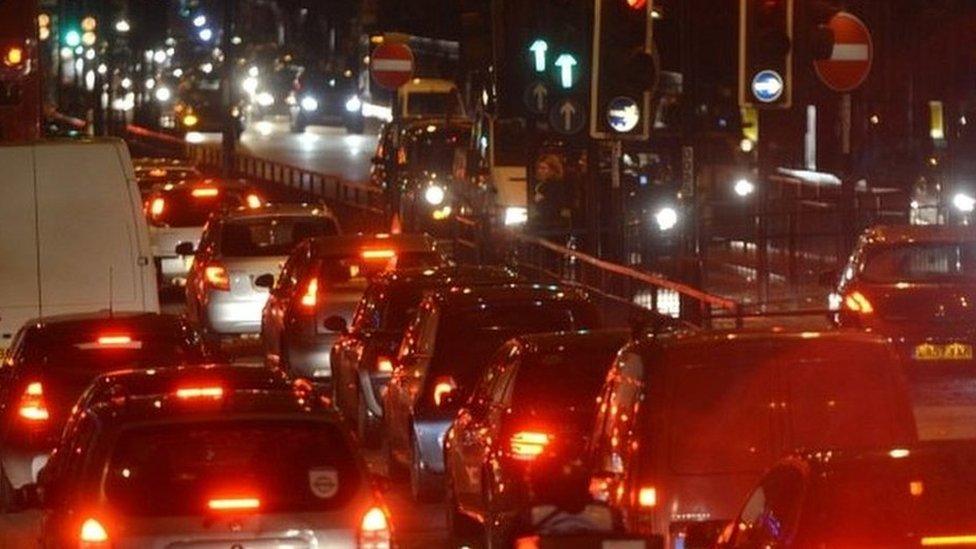
- Published12 January 2017
